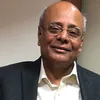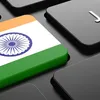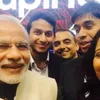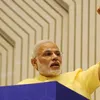Meet the American who is creating a high-quality digital public library in India
Passionate about knowledge dissemination to the public online for free, Carl Malamud started this journey in India with this digital public library.
The internet was envisioned as an open standard, where information would flow freely and everyone would have access to it. In an ideal world, sure, but in the real one, free flow of information is a distant dream, with a heightened amount of data colonisation.
However, there are those who refuse to give up that dream. One such is Carl Malamud.
Carl is running the non-profit organisation public.resource.org but since the 1980s, he has strived to make various kinds of information, especially those relating to government organisations, freely available for the public.
“I came in a techie way back in the 80s working on networks and databases, and have worked extensively on creating various standards for the internet,” says Carl.
He was also one of the pioneers of internet radio, which was deliberately kept free of cost, and worked on a non-profit basis.

Carl Malamud, founder of Public.Resource.Org
Early pioneer
Carl has the distinction of having put the White House on the internet for the first time way back in 1993, during the tenure of President Bill Clinton. He also fought a long legal battle with various government bodies in the US – the Securities and Exchange Commission (SEC), the Internal Revenue Service (IRS), to name a few – to put out information about them in the public domain.
His efforts led to a lot of information, earlier seen as inaccessible to the general public, being made available to the public for free. For Carl, though, the fight was anything but free as legal fees alone burned a $2.8 million hole in his pocket.
Gratification, however, was sweet. When Carl published regulations governing initial public offerings (IPOs) from the SEC online, there were a million page views.
“There were these big government databases, which I put online to make them available free for the public,” says Carl. His quest for information to be made public extended to the various standards governing issues like safety, health, building constructions, etc.
As an example, Carl says that if one wants to get the building codes in India, they have to pay Rs 14,000. Similarly, there are regulations governing sewage workers, which say that if somebody gets injured, it should be treated immediately as there is high probability of infections. These are some nuggets of the law that the general public is not aware of.
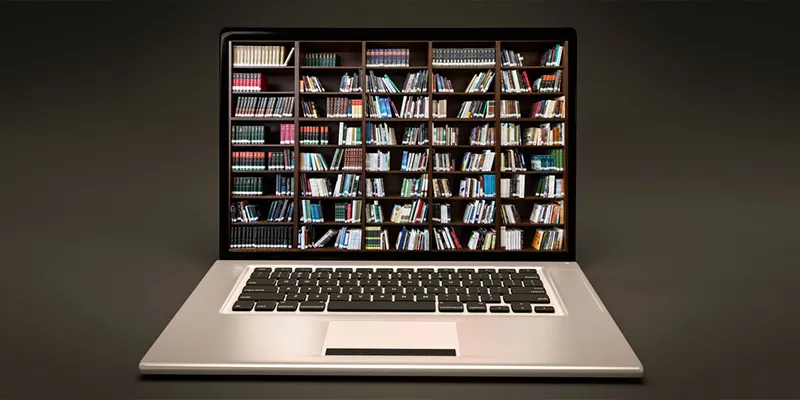
The passion to build digital public library has brought in top quality volunteer tech talent
India connection
Along the way, Carl became fascinated with India. He made several trips to the country and his focus was not just putting up various regulations and laws online, but much beyond that.
“India has a long tradition of access and dissemination of knowledge since ancient times. It also has a history of solving pressing problems, which look insurmountable,” says Carl.
“Gandhiji did more than just liberate India from the Raj; he actually decolonised the world," he adds.
From his various trips to India, Carl would take trunk loads of books, gazettes, and government documents, which he would then scan and put up online for free.
“I have posted the collected works of Gandhiji from the Sabarmati Ashram. These also include 129 audio files of Mahatma Gandhi speaking on the All India Radio,” he says.
The process was laborious, and Carl would have to use high-quality scanners to convert the books and papers into the HTML format to put up on the internet archives.
Digital public library
During his interactions people in India, Carl saw there were many others who shared his passion of creating a public repository of knowledge. “Our vision is to create a public library of India where two to three million books will be digitised every year to be widely distributed with open access,” he says.
The sole purpose of the group, called the Servants of Knowledge, was to scan, search, and seek all kinds of books across different categories, and put them up online for free.
“I found the selected works of Nehru on a government server, and also others like Ambedkar, Radhakrishnan, Rajagopalachari, Bal Gangadhar Tilak,” says Carl.
The Servants of Knowledge undertakes scanning of the materials in India, and several reputed organisations like Indian Science Academy, IIT Delhi, and J C Bose Museum are a part of this process.

Information leads to creation of knowledge is a driving for creation of public digital library
Carl believes the effort towards dissemination of knowledge should always a bottom-up approach. In Bengaluru alone, around 450 books have been scanned.
The team boasts of having put up online over five lakh books, and an equal number of state Gazetteers, 20,000 video files, and 40,000 books in Sanskrit. Books from other languages such as Kannada, Malayalam, Bengali, Telugu, and Marathi, have also been digitised.
Knowledge base
The idea, Carl says, is very simple. “We will widely disperse the data and different people can build various kinds of websites.” The fundamental rule is that the entire digitisation process be of high-quality.
In India, Carl says he has found many volunteers willing to devote a considerable amount of personal time for the activity.
“I have broadened my vision from government resources to access to information as knowledge,” he says.
Along the way, there have been many issues of copyright violation. Carl is clear that whenever there is a request for a book or some other material to be taken down if there is violation, it is immediately done.
For him, making information public comes with a simple motto: “The access to knowledge is a fundamental right, and the only way to solve various problems facing the globe is through an informed citizen. In a democracy, an informed citizen is the ruler.”
This activist who has seen the rapid growth of the internet has this to say about his knowledge mission:
“The great promise of open internet is universal access to knowledge and I am acutely aware that much of the knowledge has been locked up.”




